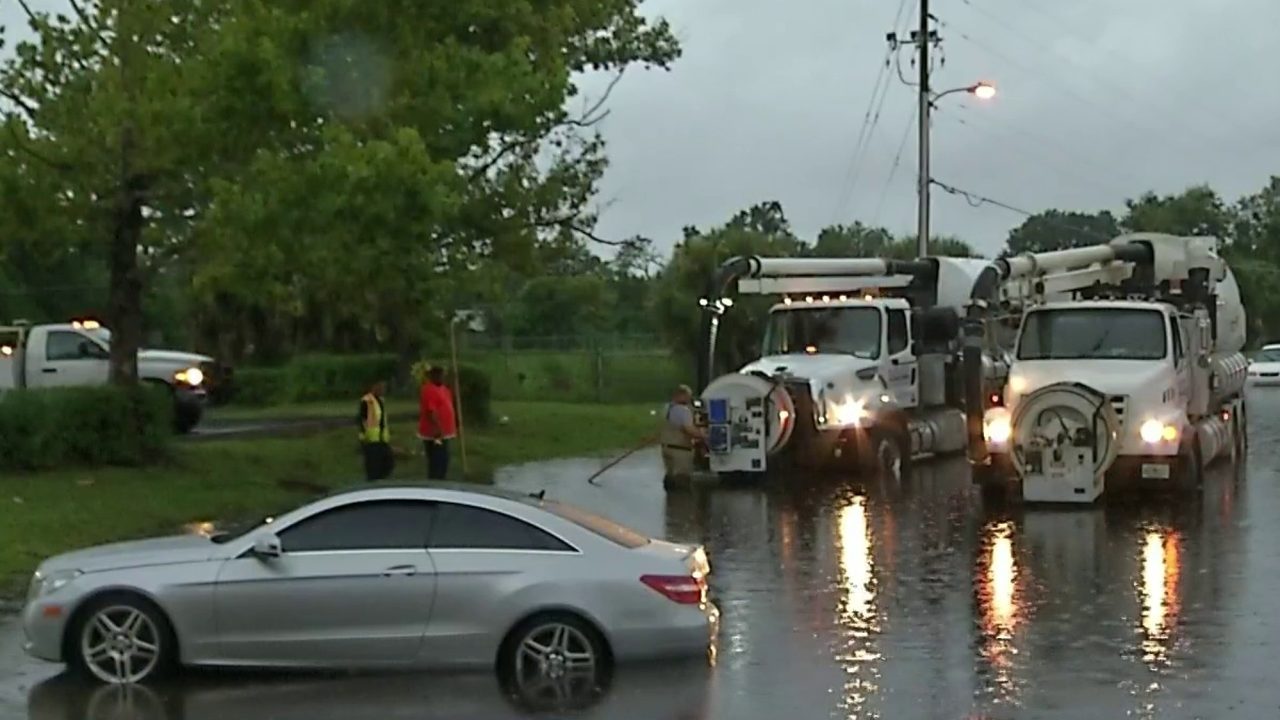ORLANDO, Fla – Top climate scientists converged on Central Florida Thursday for the 2nd annual Climate Correction conference.
Climate Correction, a partnership between the VoLo Foundation and UCF Sustainability Initiatives, aims to educate and arm the public with data about climate change, and to empower each individual to take strides toward a more renewable, sustainable future, according to the conference's mission statement.
Recommended Videos
During the conference, scientists discussed the impacts of climate change, but focused on the solutions when it comes to sustainable development.
Dr. Marshall Shepard, a leading international expert in weather and climate and director of atmospheric science at the University of Georgia, discussed how we are witnessing a new normal when it comes to extremes weather events.
"Climate change and extreme events are what people notice and feel. We don't feel averages." Shepard said.
The conference touched on a number of important topics, but here's a recap on how climate change is affecting us.
Top 5 takeaways from the conference:
1. Earth is warming faster than ever.

The Earth as warmed up 1 degree Fahrenheit over the past 25 years and is expected to warm another 1 degree in the next 15-17 years.
"So what if we warm one degree or two degrees, I mean that's great." Shepard said. There's some positive aspects in there. The reality is, the Earth system feels 1 degree, 2 degrees, 4 degrees in the same way that our bodies feel a 1, 2 or 3 degree fever. We would not want our children to run a sustained fever of three degrees," Shepard said.
2. The frequency of extreme weather events is increasing.
More intense hurricanes have formed. It's not just about the intensity of hurricanes over the past several years, it's the location. Hurricane Lorenzo just last week became the furthest east Category 5 hurricane on record. Ireland and the United Kingdom are bracing for Lorenzo's post-tropical impacts.These areas are almost never impacted by tropical systems. Hurricanes Maria, Irma and Michael lead the charge closer to home. A record snow storm in Montana and Wyoming was ongoing last week while the south baked under record heat.
3. We can link the increase in extreme weather events to climate change.
According to research, heatwaves and heavy rain events are the two most linked events. Scientifically, the warming Arctic impacts the jet stream. The jet stream is the driver of weather in our part of the world. With a warmer Arctic, the pressure gradient between the tropics and Arctic is smaller. A smaller gradient, means a weaker and wavy jet stream. A wavy jet stream typically leads to a stormy weather pattern.
4. The price of goods is increasing.
If these extreme weather events continue, you'll likely pay more for food as crops continue to be damaged by these extreme events across the country and world.
5. Impacts aren't just being seen along the coast.

Florida is at the forefront of climate change discussions, mainly because of sea-level rise. Climate change, however, isn't just impacting the coast. Every day, afternoon storms are becoming more intense. The rain is heavier and urban flooding is becoming more common.
